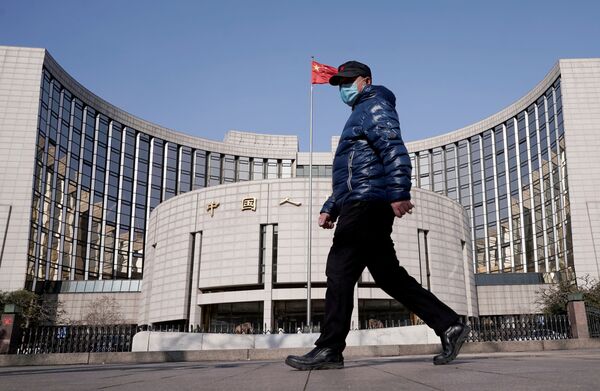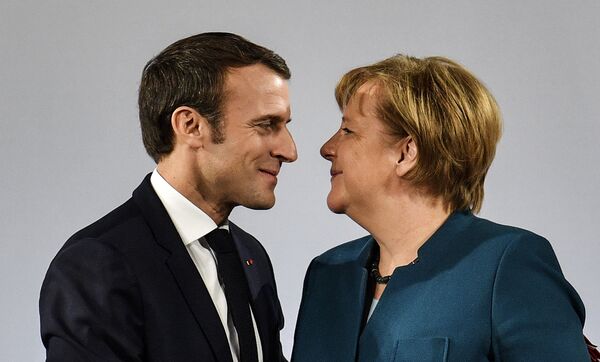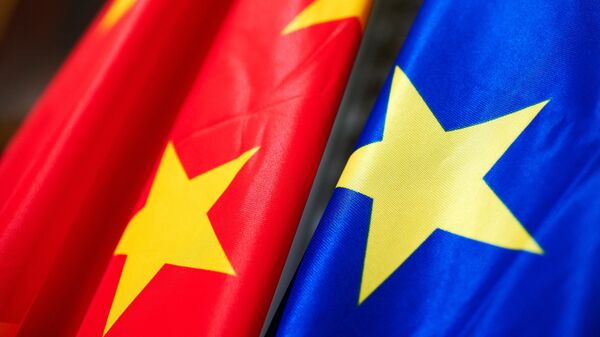Amid the COVID-19 pandemic, currently forecast to trigger the worst global recession since World War II, with economic output anticipated to plummet in almost every country, the European Union is stepping up efforts to lessen its dependence on China and bring production closer to home, writes Bloomberg.
In the wake of simmering US-China trade tensions, which have now been augmented by Washington’s accusations that Beijing was responsible for the global outbreak of the virus, previously hesitant European countries are believed to be revising their policies regarding China.

European leaders now talk of shortening supply chains in a bid to reduce reliance on the Asian country and keep potentially voracious investments at bay, despite the danger of damaging EU-China trade worth almost $750 billion last year, writes the outlet.
However, on the ground, these plans are perceived as difficult to implement without incurring dramatic losses.
Gimmi Baldinini, current chairman of an Italy-based footwear business, warns that his designer footwear company, reliant on a plant in the Shenzhen area, is in no position to cut ties with China.
“Chinese workers have a better hand with gym shoes,” said Baldinini, whose family founded the company in 1910 in northern Italy, where it still has the main production hub for the top segment goods.
“Production costs over there are 75 percent lower than in Italy. I can’t consider cutting them off and reshoring that particular production line. Simply, there’s no other way, unless the Italian government decides to cut tax and labor costs dramatically,” added Baldini.
Europe Seeks ‘Strategic Autonomy’
Earlier, European Central Bank Executive Board Member Luis de Guindos and Dutch central bank Governor Klaas Knot both urged European companies to mull relocating parts of their supply chains closer to home in defiance of higher cost risks, reports the outlet.
At the EU summit, set for 17-18 July, Europe’s leaders will be hoping to sign off on a rescue package to the tune of €750 billion put forward by European Commission president Ursula von der Leyen, with the money chiefly coming in the form of grants for countries hardest hit by the pandemic, like Italy and Spain.
As part of the deal, the European Commission is calling for ensuring “strategic autonomy” in key sectors within the bloc.

A revised pharmaceutical strategy is reportedly to address issues that were thrust to the forefront during the pandemic – such as Europe’s shortfalls in production capacity.
China turns out approximately 40 percent of all pharmaceutical ingredients used worldwide, according to German drug manufacturer Stada Arzneimittel AG, whose facilities are predominantly situated in Europe.
The company has been trying to source supplies from more than one manufacturer and from different countries, a Stada spokesman said.
In an effort to ward off possible disruptions in supply flows to core industries, Europe’s largest economy Germany is hoping to map out a supply-chain strategy in the next few months, as 17 percent of its production relies on international suppliers.
The plan envisages offering local manufacturers protection by tightening rules on human rights and environmental protection on incoming goods.
As the country’s economy seeks to reboot from the pandemic, a recent study conducted by Munich-based Ifo Institute showed that Germany’s dependence on global suppliers could become a serious impediment.
China accounts for about 40 percent of global vehicle deliveries for German auto giant Volkswagen AG, which acquired stakes in the Asian country’s battery company Guoxuan High-Tech Co. and its electric-vehicle partner in May.

France and Germany have been taking joint measures to launch a European electric-car battery industry to offset Asian dominance in the sphere, with investments worth around €8.2 billion in the pipeline, Laurent Michel, an official at France’s Ministry for the Ecological and Inclusive Transition was cited as saying.
Casting doubt on the fact that a move in the direction of regional sourcing will be either easy or swift, Elmar Kades, a consultant at advisory firm AlixPartners, was quoted as saying:
“…there won’t be 100% regional sourcing as companies will still need to ship certain raw materials, precious metals or electronics components that are used worldwide.”


